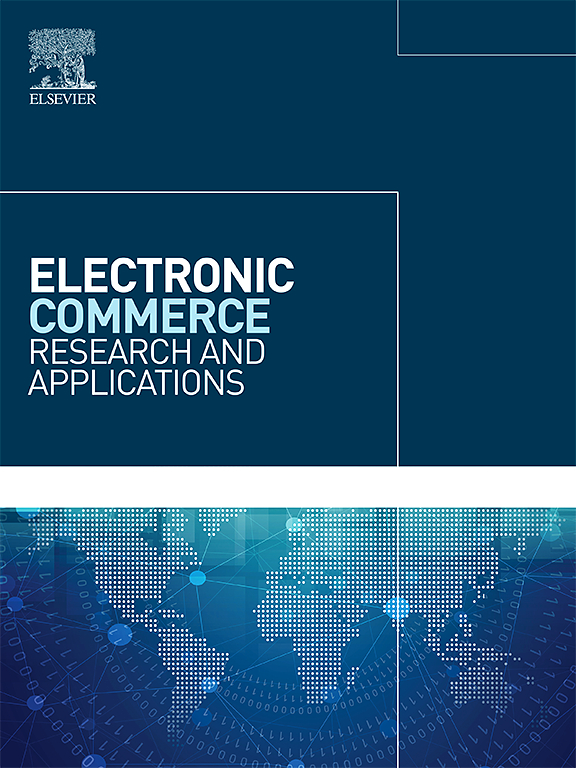From knowledge tracing to preference tracing: Capturing dynamic user preferences for personalized recommendation
IF 5.9
3区 管理学
Q1 BUSINESS
Electronic Commerce Research and Applications
Pub Date : 2025-06-30
DOI:10.1016/j.elerap.2025.101527
引用次数: 0
Abstract
Individual preferences change over time. While sequential recommenders have gained attention for accommodating changing user preferences, they have struggled to identify users’ preferences at a granular, component-wise level. This paper introduces a novel approach called preference tracing, inspired by the concept of knowledge tracing, originally developed in the educational domain. Knowledge tracing dynamically estimates a student’s knowledge state through interactions with question–answer pairs and knowledge components, predicting the likelihood of correctly answering an exercise based on the estimated knowledge state. Similarly, preference tracing continuously estimates a user's preference state as they engage with content over time, predicting whether a user will enjoy a specific movie based on the estimated preference state. Our empirical evaluations demonstrate that Bayesian knowledge tracing (BKT)-based preference tracing not only delivers comparable predictive performance but also effectively captures users’ preference states at a component-wise level. Moreover, deep learning-based knowledge tracing (DLKT)-based preference tracing, which operates without predefined movie components, outperforms recent deep learning-based recommendation models, unveiling its potential to provide more accurate and nuanced recommendations.
从知识跟踪到偏好跟踪:捕捉动态用户偏好以进行个性化推荐
个人偏好会随着时间而改变。虽然顺序推荐因适应不断变化的用户偏好而受到关注,但它们在细粒度、组件级别上难以识别用户偏好。本文介绍了一种新的方法,即偏好追踪,其灵感来自于最初在教育领域发展起来的知识追踪概念。知识跟踪通过与问答对和知识组件的交互,动态估计学生的知识状态,根据估计的知识状态预测正确回答练习的可能性。类似地,偏好跟踪在用户与内容互动的过程中持续估计用户的偏好状态,根据估计的偏好状态预测用户是否会喜欢特定的电影。我们的实证评估表明,基于贝叶斯知识跟踪(BKT)的偏好跟踪不仅提供了可比较的预测性能,而且在组件层面上有效地捕获了用户的偏好状态。此外,基于深度学习的基于知识跟踪(DLKT)的偏好跟踪在没有预定义电影组件的情况下运行,优于最近基于深度学习的推荐模型,揭示了其提供更准确和细致入微推荐的潜力。
本文章由计算机程序翻译,如有差异,请以英文原文为准。
求助全文
约1分钟内获得全文
求助全文
来源期刊

Electronic Commerce Research and Applications
工程技术-计算机:跨学科应用
CiteScore
10.10
自引率
8.30%
发文量
97
审稿时长
63 days
期刊介绍:
Electronic Commerce Research and Applications aims to create and disseminate enduring knowledge for the fast-changing e-commerce environment. A major dilemma in e-commerce research is how to achieve a balance between the currency and the life span of knowledge.
Electronic Commerce Research and Applications will contribute to the establishment of a research community to create the knowledge, technology, theory, and applications for the development of electronic commerce. This is targeted at the intersection of technological potential and business aims.
 求助内容:
求助内容: 应助结果提醒方式:
应助结果提醒方式:


